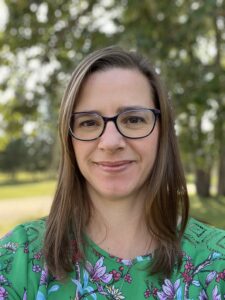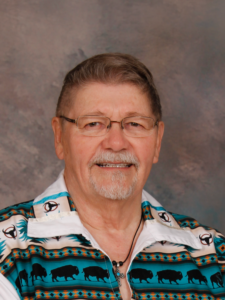Based in Rocky Mountain House, Alberta, Canada, The Métis Heritage Project operates under the authority of the Otipemisiwak Métis Government. Our goal is to maintain and educate concerning our Métis traditions, history and culture.
Meet our knowledge keepers.

BFA, BEd, GDRE
Rhonda is a teacher who works with homeschool families, a life coach, and the Director of The Métis Heritage Project.
She lives in Rocky Mountain House, traditional meeting ground and home to the Blackfoot, Cree, Saulteaux, Stoney and Métis people.
The National Historic Site in Rocky Mountain House is one of her favourite places and she considers it a privilege to help provide Métis interpretive programming there through the work of the Métis Heritage Project.
Like many of her Métis contemporaries who grew up not knowing about her Indigenous identity, she is working to learn, reclaim, and share the history, culture, and spirit of her people. She is falling in love with her heritage and welcomes you to join her on her journey!
Tawaw!

Métis Elder | Métis Cultural Consultant | Métis Veteran
A proud 5th generation Métis, Bernie was born April 1, 1942 in Lebret in the Qu’appelle Valley of southern Saskatchewan.
In 1965 Bernie married Audrey Veenstra, and in 2023 they celebrated their 58th wedding anniversary. They
have three children, Edward, Patricia and Christopher., and have 9 grandchildren and one great grandchild.
Descended from Joseph Ouellette, who at the age of 94, fell at the Battle of Batoche in 1885 defending Métis rights, Bernie comes from a family of Veterans.
Following his family traditions, he proudly served in the Canadian Armed Forces from 1960 to 1963. His father Ted, was also in the Canadian Army and fought for the liberation of Holland in the Second World War. Bernie also had 4 brothers who served in the Canadian Armed Forces. His brother Albert served with the PPCLI and the Queens Own Rifles and spent sometime in Germany. Ted Jr. was with the Royal Canadian Horse Artillery. Leonard was with the PPCLI and served in Korea. Bernie’s brother James was with the PPCLI in Korea when he was killed in action at the young age of 19 in 1952. James was a Métis scout and sniper.
Bernie’s mother and his older brothers and sisters all attended Residential Schools. In the early years, Bernie’s family lived on a road allowance in north central Saskatchewan.
Bernie has served as President of the Métis Local 845 in Rocky Mountain House since 2015. In the past few years Bernie’s main responsibility with the Local was to oversee the Métis encampment at the Rocky Mountain House, Parks Canada National Historic Site. His job was to hire the summer students and train them in Métis Culture and History so that they could actively engage with the thousands of tourists that visit the site annually.
Dressed in period costumes (Circa 1860) about 12 students (Métis, First Nations and non-Indigenous), having learned about Métis History and culture, actively impart their newfound knowledge to the visiting tourists. The students also learn to dance the various Métis dances and jigs. Actively engaging with the tourists, the students tell the story of the Métis. Starting with the fur trade, they tell the tourists who the Métis are, where they came from and how the Métis contributed positively to the development of Western Canada.
In 2022 Bernie was appointed by his community as a Métis Elder and a consultant on Métis History and Culture to The Métis Heritage Project which is based out of Rocky Mountain House.
One of the most important parts of Bernie’s tasks with The Métis Heritage Project is to visit the schools as a Métis Elder and to tell the students firsthand, the Métis story. His students learn about the colourful Métis history and culture from a Métis perspective. They not only learn about the historic Métis struggles and hardships but also about the many Métis accomplishments and contributions to Canadian
society and history.
In so doing he instills in these students a better understanding of who the Métis are, where the Métis came from and how their successful struggle for survival has made Canada a much better place to live.